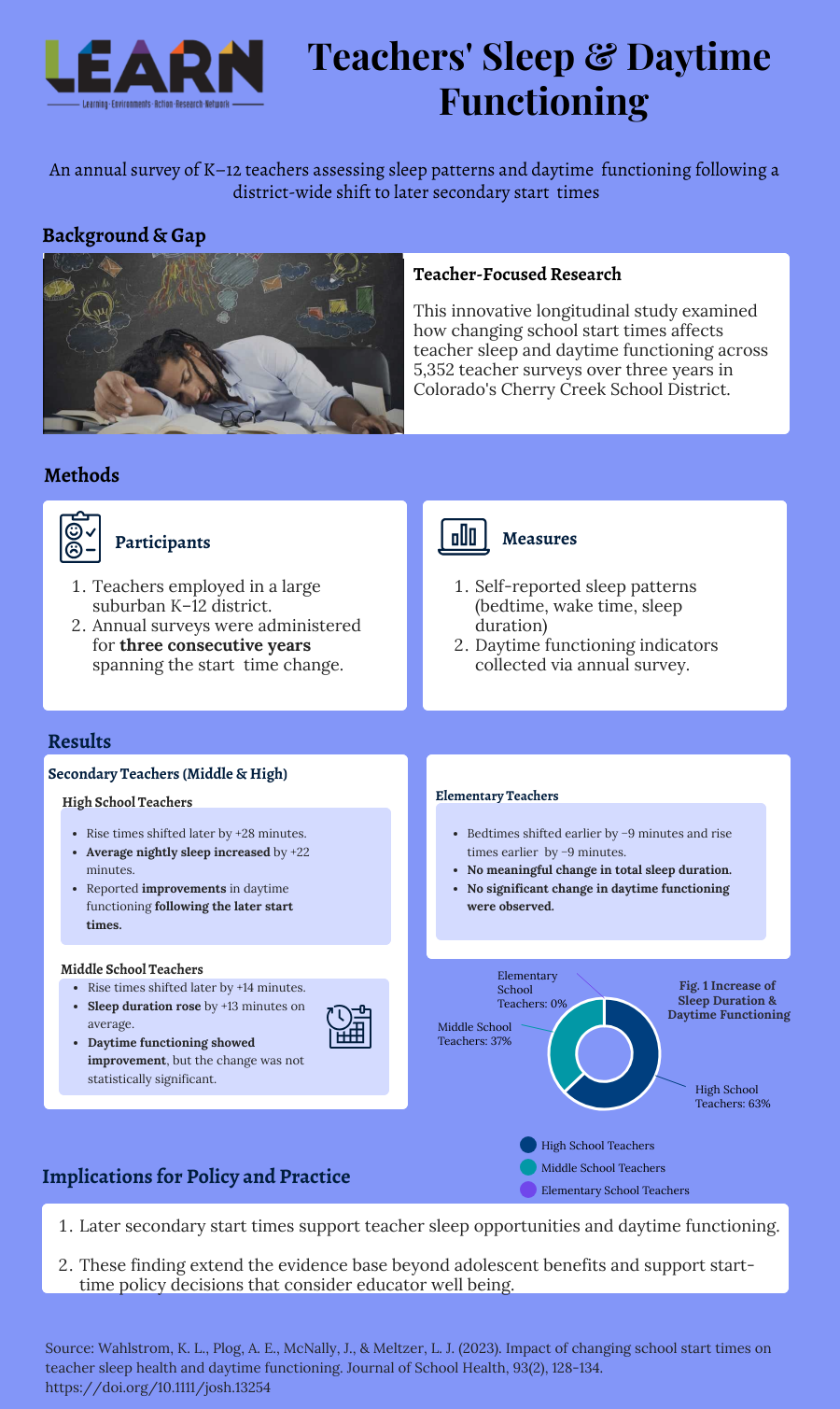
Source: Wahlstrom, K. L., Plog, A. E., McNally, J., & Meltzer, L. J. (2023). Impact of changing school start times on teacher sleep health and daytime functioning. Journal of School Health, 93(2), 128-134. https://doi.org/10.1111/josh.13254
Criteria for Selection: While most studies of later start times focus on student impact, this study fills a significant gap in understanding the full range of benefits. This can have implications for avoiding teacher burnout and enhancing classroom effectiveness. Peer-reviewed study.
LEARN Brief and Infographic Credits: Dr. Crystal Glover, Dr. Jeannie Haubert, Ashlea Sovetts, MFA
This innovative longitudinal study examined how changing school start times affects teacher sleep and daytime functioning across 5,352 teacher surveys over three years in Colorado’s Cherry Creek School District. When secondary schools started later (high schools 70 minutes later, middle schools 40-60 minutes later), teachers experienced significant improvements in sleep and later wake times: high school teachers gained 22 minutes of sleep and 28 minutes later wake times, while middle school teachers gained 13 minutes of sleep. Remarkably, 85-90% of all teachers achieved sufficient sleep duration post-change, compared to only 64-74% of Colorado adults generally.
Given its comprehensive approach and large sample size, this study provides convincing evidence of the ways in which systemic policy changes can benefit entire teaching populations more effectively than individual wellness interventions. While elementary teachers in the study had to start 60 minutes earlier due to busing logistics, they showed no negative impacts on sleep duration or daytime functioning. Moreover, the research provides compelling evidence that later start times create “sleep opportunity parity” across grade levels and offers a scalable solution to teacher wellness that requires minimal individual effort while producing substantial collective benefits.


Join education leaders in Nashville for an experience focused on practical strategies to attract families, retain teachers, and strengthen board alignment. Spots are limited.